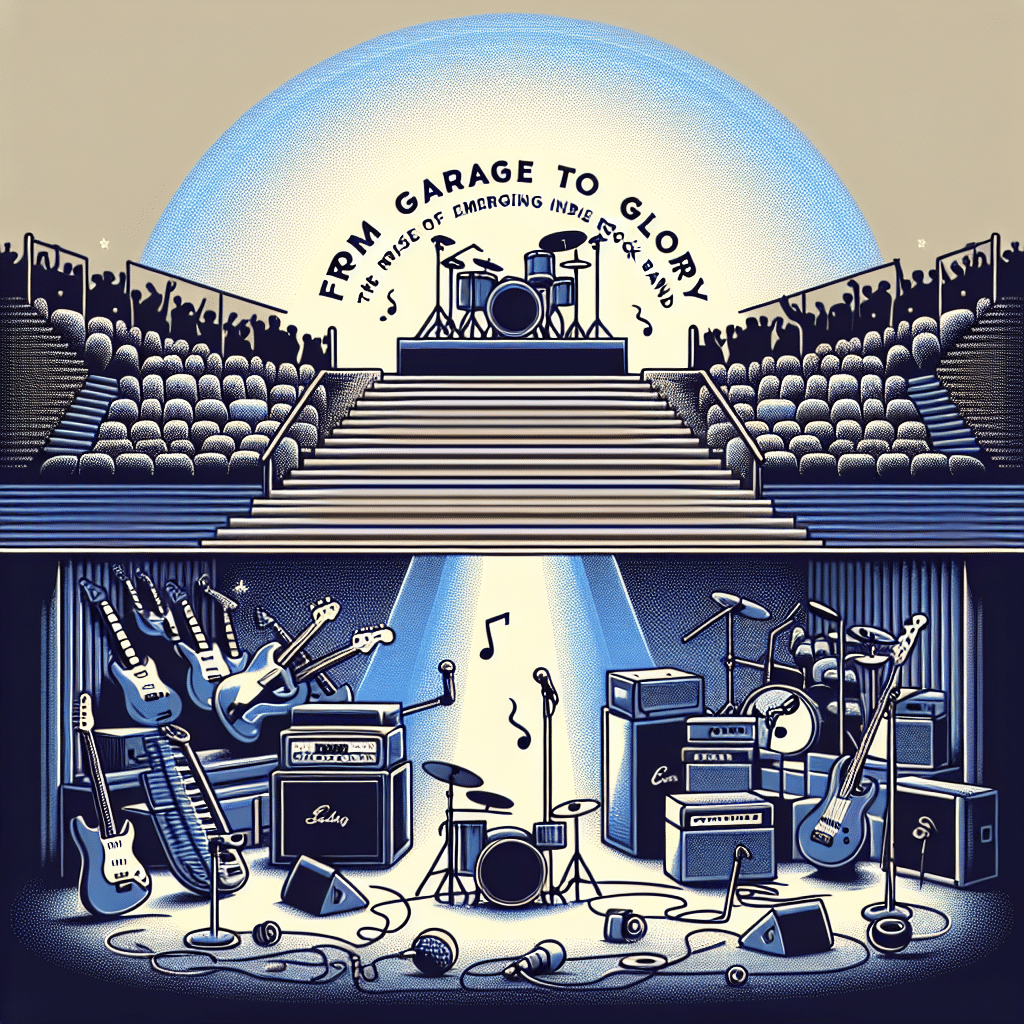From Garage to Glory: The Rise of Emerging Indie Rock Bands

The world of indie rock has significantly transformed over the years, evolving from small garage jams to dominating global music festivals and charts. This article explores the journey of indie rock bands, tracing their rise from humble beginnings to international fame. It highlights the significance of this evolution, examining the cultural, social, and technological factors contributing to the emergence of these indie artists and bands.
The Roots of Indie Rock
Before diving into the rise of contemporary indie rock bands, it's essential to understand the genre's origins. The term “indie” originated in the 1980s, referring to music produced independently from major record labels. Drawing inspiration from punk rock, folk music, and alternative rock, early indie bands focused on creative freedom and individuality. They showcased raw sound and authentic lyrics, striking a chord with listeners who yearned for a break from mainstream pop.
The Garage Band Phenomenon
Garage bands became synonymous with the indie rock movement. Typically formed by teenagers or young adults, these bands rehearsed in their garages and basements, fostering a sense of community and creativity. The sound was often unpolished, emphasizing energy over perfection. Prominent bands like The Strokes and The White Stripes began their journeys in garage settings, creating a path for many others to follow.
Technological Advancements and the Democratization of Music
The rise of emerging indie rock bands can, in part, be attributed to advancements in technology. The proliferation of home recording tools, digital audio workstations, and social media platforms has empowered aspiring musicians to create, produce, and distribute their music without the backing of a major label.
See Also: From Vinyl to Streaming: The Evolution of Classic Rock Favorites
From Vinyl to Streaming: The Evolution of Classic Rock FavoritesHome Recording Studios
Affordable recording software and hardware have allowed independent artists to produce high-quality music from their homes, eliminating the need for expensive studio time. Bands like Tame Impala and Bon Iver recorded significant portions of their albums in home studios, demonstrating how this accessibility can lead to remarkable artistic innovation.
Social Media and Streaming Platforms
Social media platforms such as Instagram, TikTok, and Twitter have become essential tools for budding artists to promote their music and build a fanbase. Emerging indie bands regularly share updates, behind-the-scenes insights, and snippets of new music, allowing them to connect directly with their audience.
Streaming platforms like Spotify and Bandcamp have revolutionized the distribution of music. Emerging artists can reach a global audience without a traditional record label, resulting in a wider diversity of sound and styles within the indie music scene.
The Role of Festivals
Music festivals have played an instrumental role in the rise of emerging indie rock bands. Events like Coachella, Lollapalooza, and Glastonbury serve as pivotal platforms for indie artists to showcase their talent. Many bands have transitioned from performing in small local venues to headlining major stages, gaining exposure and increasing their fanbase.
Community and Collaboration
See Also:![Electric Atmosphere: [Band Name] Ignites the Stage in [City Name]](https://hits1000.com/wp-content/uploads/2024/10/1729108590-100x100.png) Electric Atmosphere: [Band Name] Ignites the Stage in [City Name]
Electric Atmosphere: [Band Name] Ignites the Stage in [City Name]Festivals foster a sense of community among indie artists. They offer networking opportunities that can lead to collaborations, mentorships, and exposure to wider audiences. This collaborative spirit has cultivated a thriving indie music scene that champions creativity and experimentation.
The Impact of Cultural Shifts
As societal values change, so too has the music that resonates with listeners. Emerging indie rock bands often address social issues, personal experiences, and cultural phenomena in their music. This relatability has contributed to broadening their appeal, making indie rock relevant to a diverse audience.
Diverse Voices
The indie rock movement has also seen a rise in diverse voices, with bands and artists from various backgrounds sharing their stories and experiences through music. Groups like Hop Along and Big Thief have garnered recognition for their unique perspectives, illustrating the importance of representation in the music industry.
Case Studies: From Garage to Glory
Several bands exemplify the journey from garage to glory, showcasing the innovative spirit and resilience of the indie rock movement.
The 1975
See Also: Beyond the Charts: Indie Rock's Influence on Modern Music Culture
Beyond the Charts: Indie Rock's Influence on Modern Music CultureHailing from Manchester, The 1975 began as a local band playing small gigs in their home city. Their sound, blending rock, pop, and electronic elements, captivated audiences and led to their self-titled debut album in 2013. Over time, they evolved into one of the leading bands in the indie sphere, touring the world and winning multiple awards.
Arctic Monkeys
Arctic Monkeys started as a group of friends jamming in a garage in Sheffield. Their breakout single, "I Bet You Look Good on the Dancefloor," catapulted them to fame, making them one of the defining bands of the 2000s. Their distinctive sound and relatable lyrics have earned them a lasting place in the indie rock canon.
Conclusion: The Importance of Emerging Indie Rock Bands
The rise of emerging indie rock bands is a testament to the power of grassroots creativity, technology, and community. These artists embody the spirit of independence and challenge the status quo, signaling a broader cultural shift toward valuing authenticity over commercial appeal. This evolution not only enriches the music scene but also encourages the growth of diverse voices and stories, fostering deeper connections with audiences.
Today, indie rock stands as a vibrant and essential part of the music industry, representing the dreams and aspirations of countless artists who continue to redefine and reshape the genre. By supporting these emerging talents, listeners contribute to a dynamic cultural landscape marked by innovation, creativity, and a celebration of individuality.
FAQs
What defines an indie rock band?
See Also: The DIY Revolution: How Indie Rock Artists are Taking Control of Their Careers
The DIY Revolution: How Indie Rock Artists are Taking Control of Their CareersAn indie rock band is typically characterized by its independent production approach, unique sound, and creative freedom outside the constraints of major record labels.
How has technology impacted the rise of indie rock bands?
Technological advancements, such as affordable recording equipment and streaming platforms, have enabled indie artists to create, distribute, and promote their music without traditional industry barriers.
Are indie rock bands still popular today?
Yes, indie rock remains a popular genre, with numerous emerging bands gaining recognition and attracting large audiences at festivals and events worldwide.
What is the role of music festivals for indie bands?
Music festivals provide significant exposure for indie bands, allowing them to showcase their talent, connect with fans, and network with other artists and industry professionals.
How can I support emerging indie rock artists?
See Also: Sonic Experiments: How Indie Rock is Redefining Music Production
Sonic Experiments: How Indie Rock is Redefining Music ProductionListeners can support indie artists by purchasing their music, attending shows, sharing their work on social media, and engaging with them directly.
If you want to know other articles similar to From Garage to Glory: The Rise of Emerging Indie Rock Bands you can visit the category Rock.
